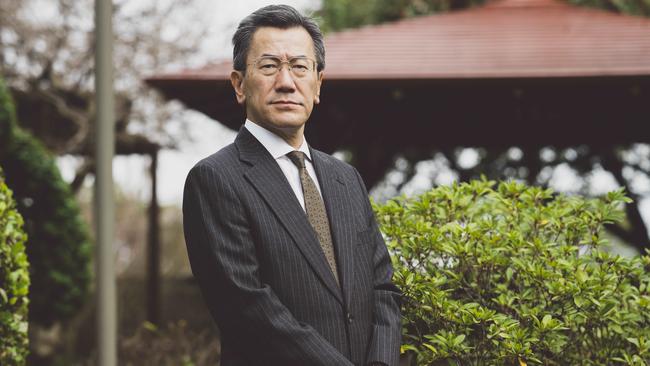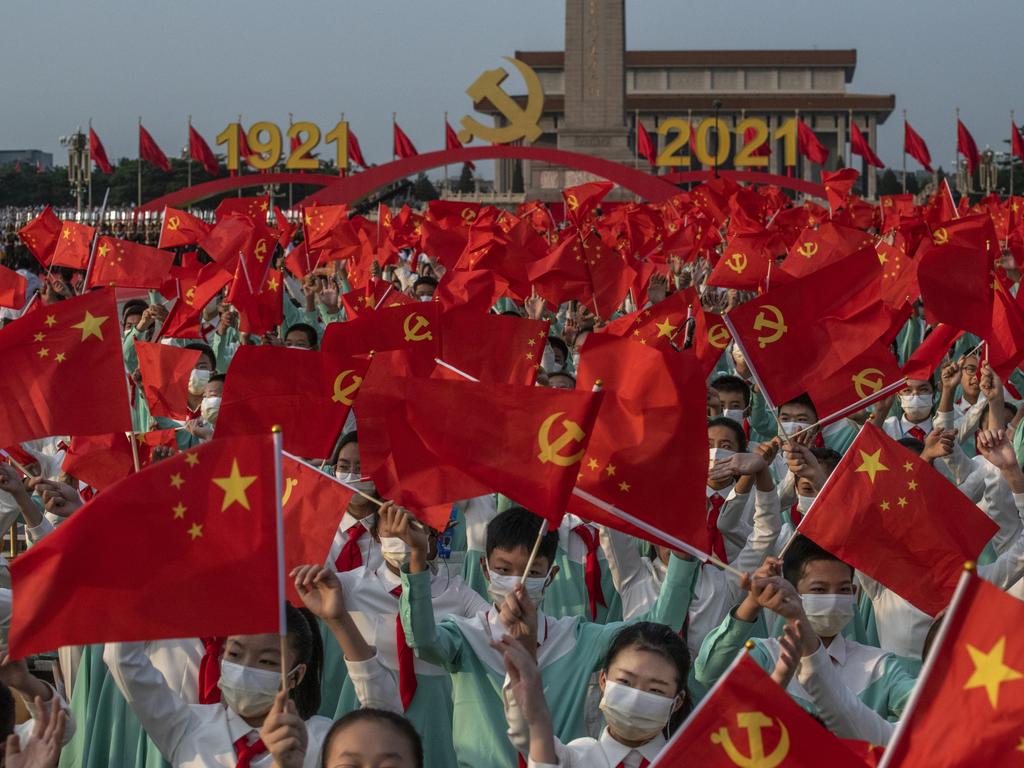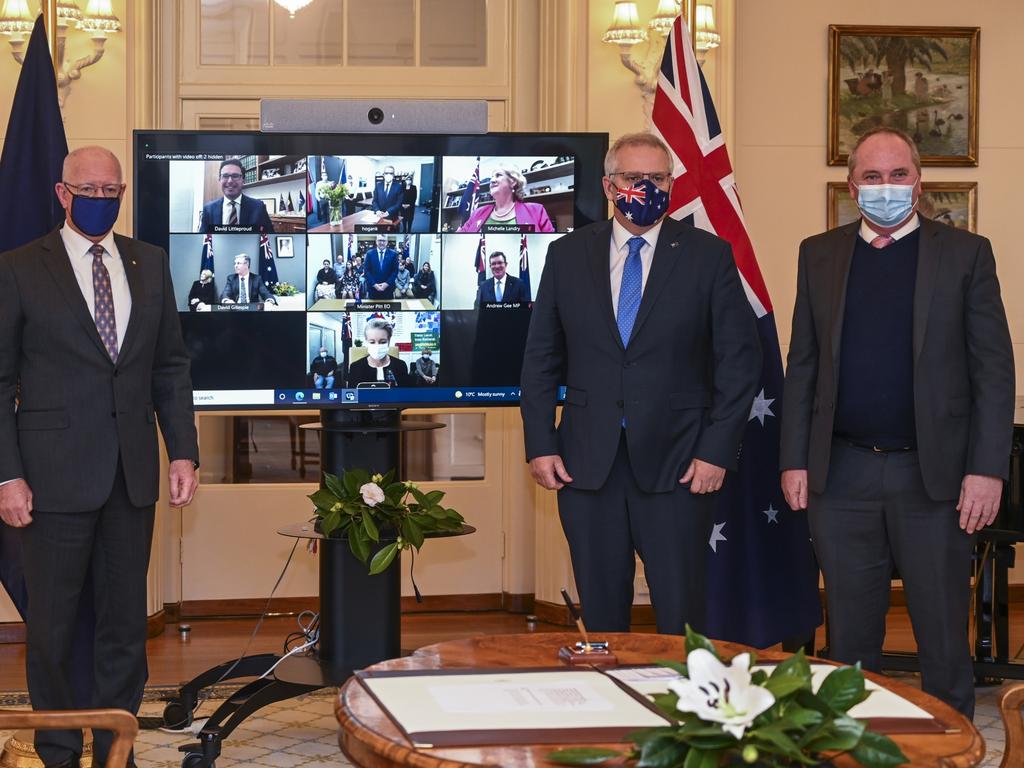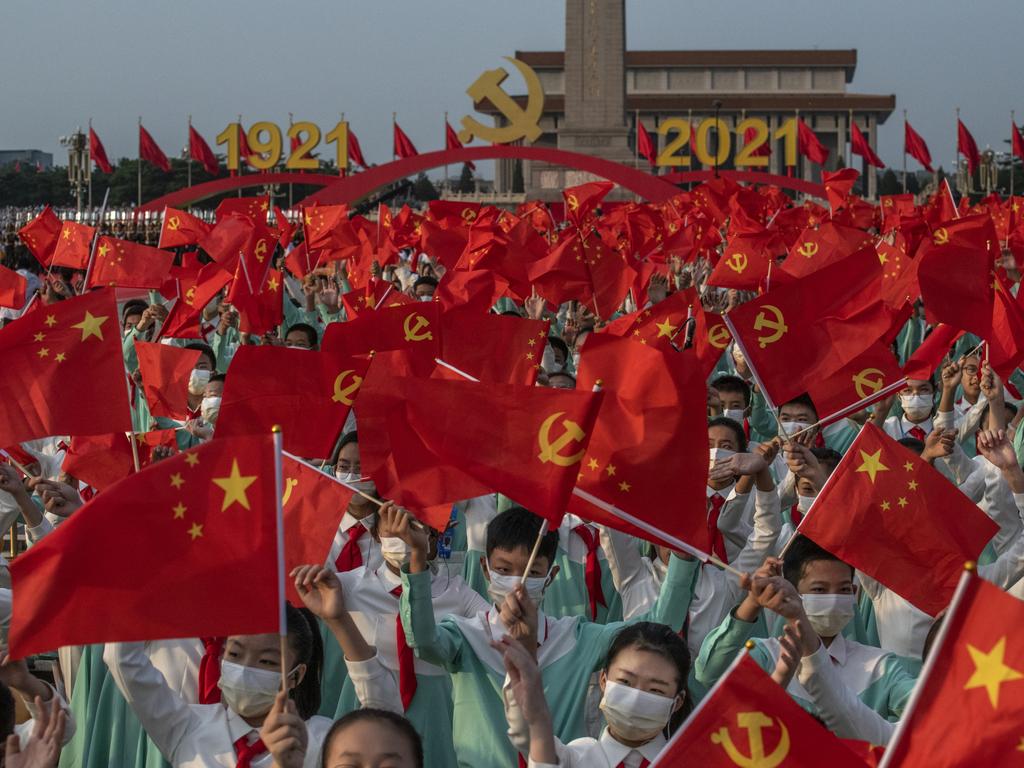Japan boosts military links to fend off China
Japan’s top diplomat says the strategic partners must work to prevent the Indo-Pacific becoming ‘a lawless jungle’.

Japan will step up joint military training and regional infrastructure projects with Australia, with the nation’s top diplomat in Canberra declaring the strategic partners must work together to prevent the Indo-Pacific becoming “a lawless jungle”.
Japanese ambassador Yamagami Shingo said Australia would not resist Chinese economic coercion alone, and vowed to work with Australia and other free countries to provide “a counterweight against such a dominant power”.
He said China’s “blatant attempt to change the status quo” in the East and South China Seas had direct relevance to Australia, which needed free access to the waterways for its economic security, and warned Australia could face disruption of its supply lines even closer to home.
Mr Yamagami said he hoped a new Reciprocal Access Agreement for the nations’ militaries, agreed in-principle between Scott Morrison and Japanese counterpart Yoshihide Suga last November, would be finalised by the end of the year, paving the way for “more complex and sophisticated” defence co-operation.
The landmark defence treaty, which was delayed over concerns about legal indemnities for Australian troops on Japanese soil, will set out a clear framework to allow each nation’s military to operate in the other’s country, streamlining arrangements for joint exercises and humanitarian missions across the region.
Mr Yamagami said the agreement would allow Japan’s Self Defence Force personnel to come to Australia on longer and more frequent visits, and enable ADF personnel to undertake more training in Japan.
Mr Yamagami suggested Japan was interested in making greater use of Australia’s remote training facilities and weapon ranges in the future, and undertaking more joint exercises with the Australian Navy.
“I am quite sure that with the conclusion of the RAA, we will have more of those exercises in Australia, and in Japan, because you have the advantage of a huge, tremendous land size – less populated compared with Japan – and the strategic importance of the Northern Territory, especially the Port of Darwin, is obvious to any strategist,” he said.
Mr Yamagami said there was no proposal yet for long-term rotations such as those by US Marines, but “in terms of conducting efficient military exercises, I think it is possible for them to stay here longer than they used to do.”
Greater interoperability was vital, he said, because “at the time of contingencies, we have to work closely together”.
At a “2+2” meeting last month between Foreign Minister Marise Payne, Defence Minister Peter Dutton and their Japanese counterparts Motegi Toshimitsu and Kishi Nobuo both countries committed to “opposing coercion and destabilising behaviour by economic means, which undermines the rules-based international system”.
The statement was a clear show of Japanese support for Australia, which has suffered targeted sanctions on more than $20bn of exports to China.
Mr Yamagami said the two nations would “speak out together” to maintain the rules-based order.
“The important principle we need to keep upholding is the rule of law; otherwise we will end up living in a lawless jungle,” he said.
Mr Yamagami said Japan’s trilateral infrastructure program with Australia and the US aimed to provide “higher quality” projects than Xi Jinping’s Belt and Road Initiative, helping developing nations to withstand Chinese pressure.
“If you look at Southeast Asia and Pacific island countries, nobody wants to be dominated by any particular hegemonic power. They need a counterweight against such a dominant power.
“We are also not here to lecture and hector. We are here to strike an equal partnership. In that regard we can make a lot of difference.”
He said the projects would offer wider benefits, without the money ending up “in the pocket of a small number of people”.
Mr Yamagami said there was also strong potential for Australia and Japan to co-operate more closely on space science and technology, noting the two countries were at effectively the same longitude, allowing the sharing of information from geostationary satellites.
The former head of the intelligence branch of Japan’s Foreign Affairs Ministry said his country shared “values and strategic interests” with Five Eyes countries, but wasn’t ready to pitch for formal membership of the intelligence sharing alliance.
He said Japan had “a lot of homework” to do in relation to its legal and organisational frameworks around the collection of intelligence.
“We have tremendous challenges in front of us … so rather than talking about the institution, on the ground we can keep building specific blocks of co-operation.
“That might be the most solid, and the shortest cut, to what we can achieve together.”
Mr Yamagami said his country was on the “frontline” of Chinese harassment, with Beijing using its coastguard and maritime militia to challenge Japanese sovereignty over the Senkaku Islands in the East China Sea.
“If it can happen in the East China Sea, the South China Sea, it can happen anywhere,” he said.
“This is an issue for Australia too. Your cargo ships – their number one destination is China, number two destination is Japan, number three destination is South Korea.
“All of those cargo ships carrying Australian minerals go through the East China Sea, so this is an issue for Australia as well.”
Japanese Self Defence Force soldiers participated in Exercise Southern Jackaroo in June with Australian and US troops, and will take part in Exercise Talisman Sabre with the ADF and US Marines this month.
In May, Anzac Frigate HMAS Parramatta joined ARC 21 amphibious exercises off Japan, while the nations’ air forces conducted their first bilateral air combat exercises in Japan last year.








To join the conversation, please log in. Don't have an account? Register
Join the conversation, you are commenting as Logout